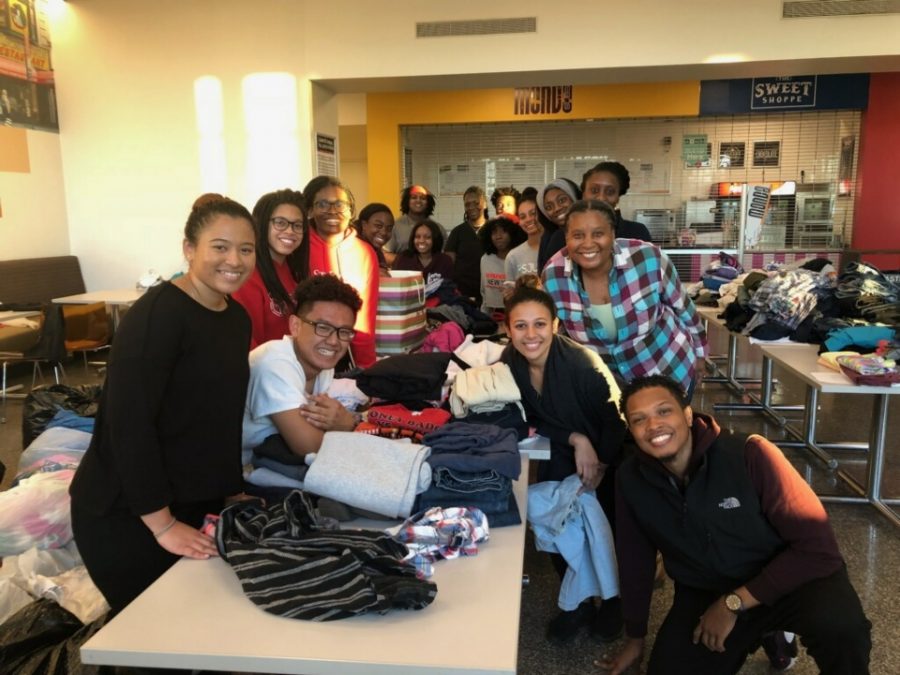When graduate student Seraiah Romero received word that a three-day long rainfall had devastated Trinidad and Tobago, she instantly thought of her cousins, aunts, uncles who live in a town she was raised in called Sangre Grande. Born and raised in Trinidad, Romero is an international student who made her way to the states for college and remained here to pursue a graduate degree.
After receiving videos from her cousins in Sangre Grande and phone calls from her parents, who live in a town called Arima, Romero knew she had to do something. She started a GoFundMe.
“No one was prepared for the rainfall, the rain just started falling and because there isn’t infrastructure to receive the rain, all of the dams overflowed,” she said. “A lot of the communities flooded out.”
On Oct. 17-19, Trinidad and Tobago experienced intermittent periods of rainfall and thunderstorms. The persistent rainfall caused flooding in a large portion of the country. According to government officials, Trinidad alone received a full month’s worth of rain during the two days. It was estimated 80 percent of the country was affected by flooding; communities, main roads and public services were affected.
There are reports from Office of Disaster Preparedness and Management and Caribbean Disaster Emergency Management Agency’s Situation Report that the flooding has impacted 100,000 to 150,000 people.
“It took almost three days for the flood levels to go down because rain was still falling,” Romero recalled. “ Water got up to five feet — beds, mattress, clothing, wallets and a lot of animals from the lagoons started to surface, including alligators, snakes.”
On the day after the flooding, Romero said many people’s houses were underwater.
Romero recalls hearing the story of one of her aunts who couldn’t escape on her own. “She lived in a two-layer house with her son and daughter in law, [who were at work during the rainfall]. When the flood levels started rising, she was trapped in the lower level and she had to wait for hours until my uncle was able to rescue her,” she said. “One of my uncles who lives in the area had to rescue a lot of people in the area using a boat. He likes to fish and he used his fishing boat to save people in the area.”
Within 15 days, Romero raised $1,460 on GoFundMe, and said she is grateful for the students, professors and faculty members who donated to the cause.
“Being in the U.S. and starting this drive showed people in Trinidad how much support there is in the U.S.,” she said, “They now know that the support is there. I think I will reiterate a sense of strength and community and togetherness.”
Romero recalls a phone call from her mom where she asked her to send clothes that she didn’t wear anymore. She said that people were really struggling.
That’s when Romero started a clothing drive. She posted a flyer on Instagram encouraging people with extra clothing they didn’t wear or who have a donation to connect with her so that she could ship it to Trinidad and Tobago.
“One of my cousins in New Jersey partnered with me, she was our collection point there,” Romero said. “Through Facebook and Instagram, people were calling to meet up to drop stuff off.”
Romero collaborated with the university to establish on-campus collection points.
“OMA was a drop-off center and the VISA (Vincentian Institute for Social Action) Office in Lourdes Hall was a drop off center.”
The Caribbean Students Association (CSA) partnered with Romero to have a table in DAC, where they collected food items, stationery and clothes.
“Members from Eden and CSA partnered with us to sort out sizes so it would be an easier distribution process,” she said. “We’ll be filling up six barrels 55 gallon sized (brown cardboard barrels)”
In all, Romero says she was able to collect about 50 parcels of clothing from about 50 St. John’s students and people from the Caribbean diaspora who saw the post on social media.
Romero credits her younger sister, Steffi Romero, for the success of her fundraiser.
“I believe that the basis of our work is that knowing that service onto people is service onto God,” Steffi Romero said.
Moving forward, Seraiah Romero said the local government is giving victims grants to help them rebuild.
“It’s going to take a long time because people won’t have the documentation because it was destroyed in the storm.”










